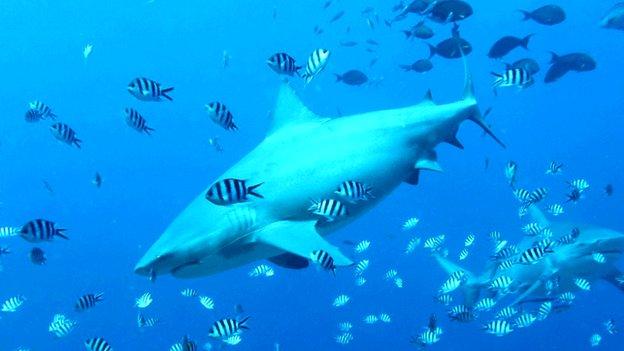Surfer Mick Fanning's mum saw shark attack on live TV
- Published
Surfer Mick Fanning: "I punched the shark in the back"
Surf champion Mick Fanning's mum watched "terrified" on live television as her son was attacked by a shark in South African waters.
The Australian surfer, 34, was competing at an event in Jeffreys Bay in the Eastern Cape on Sunday when a black fin appeared behind him.
He punched and kicked the shark and was soon rescued by a jet-ski.
"I couldn't believe what I was seeing. I thought we'd lost him," his mum Elizabeth Osborne told ABC News.
Mick Fanning's mother: "I just wanted to save him...but there was nothing I could do"
"I was absolutely terrified. I went over to the television almost as though I could pull him out... to save him," she told the Australian Broadcasting Corporation from her home on Australia's Gold Coast.
Ms Osborne had already lost a son to a car crash 17 years ago and she said those memories came back to her.
"When Sean was killed in the car accident, I didn't see it," Ms Osborne said. "I saw this just in front of me. It was just terrible."

Are South Africa's beaches safe?
By Pumza Fihlani, BBC southern Africa correspondent
South Africa's coastline stretching over thousands of kilometres is popular with beach goers and surfers almost all year round. But more and more reports of shark attacks have been making news in recent years begging the question: Are South Africa's beaches safe?
There is a lot of speculation around why sharks attack humans but experts says that unlike in the famous world Hollywood movie Jaws, shark attacks are not planned or even malicious.
The predators are said to be often curious and bite to get a sense of what the prey is. But these are predators and "caution should be exercised when at sea" says Craig Lambinon of the National Sea Rescue Institute, who sometimes respond to shark attack calls.
Local experts say that while shark attacks do happen they are one of the most uncommon forms of injury or death in the world.
The Natal Sharks Board says the country's beaches are considered safe by international standards, but many beaches in the country do not have shark nets so people take this into account when going swimming, surfing, diving or deep sea fishing - all popular activities here.
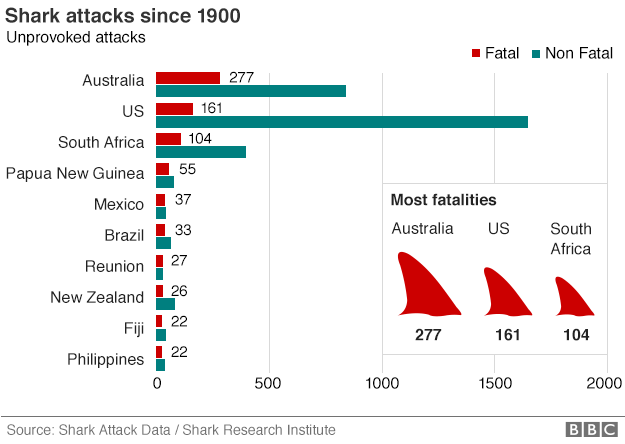

Fanning, the defending champion at the tournament and a three-time world champion, escaped without any injuries.
"I was just sitting there and I felt something just get stuck in my leg rope, and I was kicking trying to get it away," Fanning told Fox Sports. "I just saw fins. I was waiting for the teeth."
Fanning said he was able to "get a punch into its back" and startle the shark.
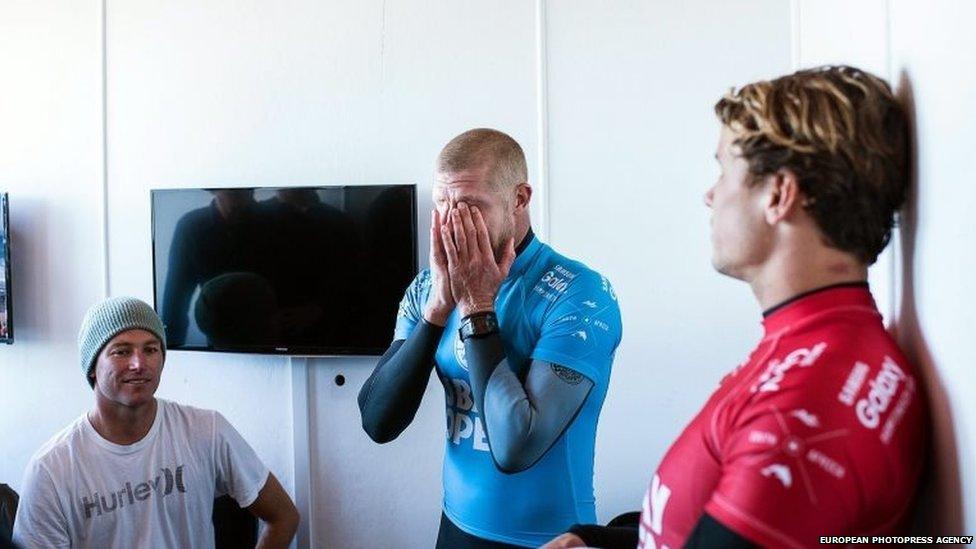
Mick Fanning (centre) was emotional after he escaped unharmed from the shark attack
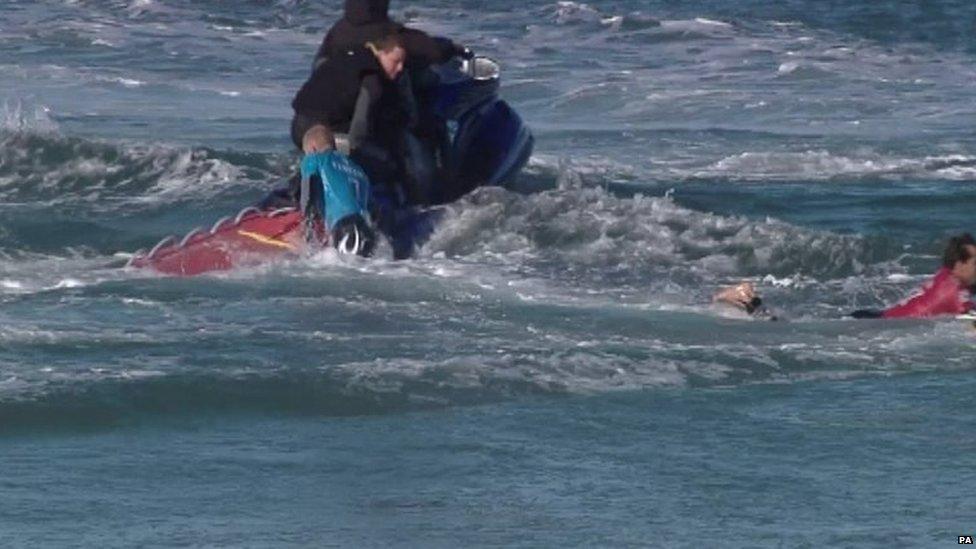
Fanning was pulled onto a jet ski by rescuers
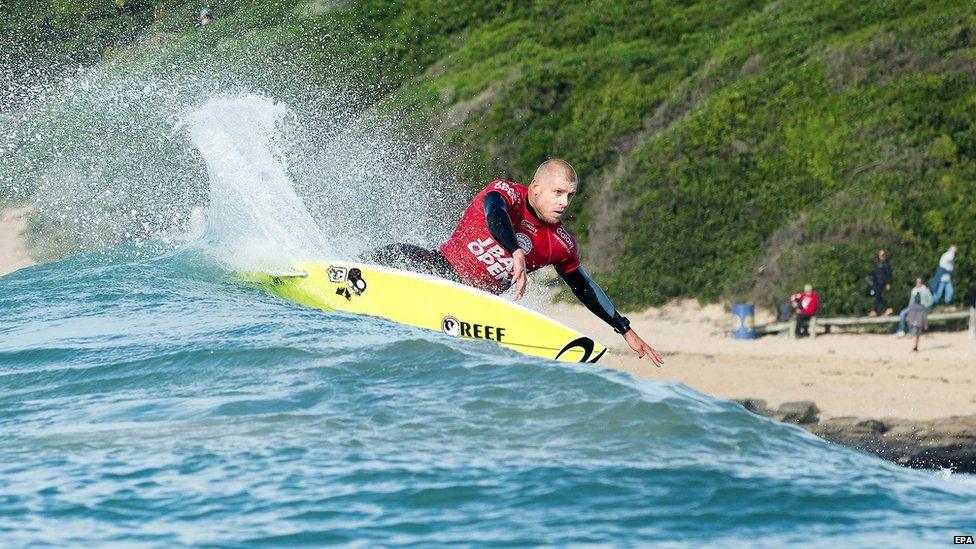
Mick Fanning pictured earlier this week surfing in Jeffreys Bay
Can science stop sharks attacking humans?
Australian firm develops 'shark-proof' wetsuits
The World Surf League (WSL), which organised the J-Bay Open, said two shark were seen in the water near Fanning and another competitor, Julian Wilson, also from Australia.
The two surfers are rivals but also friends and Wilson paddled towards Fanning to help him.
Wilson was emotional afterwards telling the Sydney Morning Herald that he felt as if he couldn't get to Fanning quickly enough.
"It came up and he was wrestling it, and I saw he got knocked off his board," Wilson said. "I was like, 'I've got a board, if I can get there I can stab it or whatever, I've got a weapon.'"
Wilson's mum was also watching on TV and told reporters: "I don't know if he's crazy or a hero."
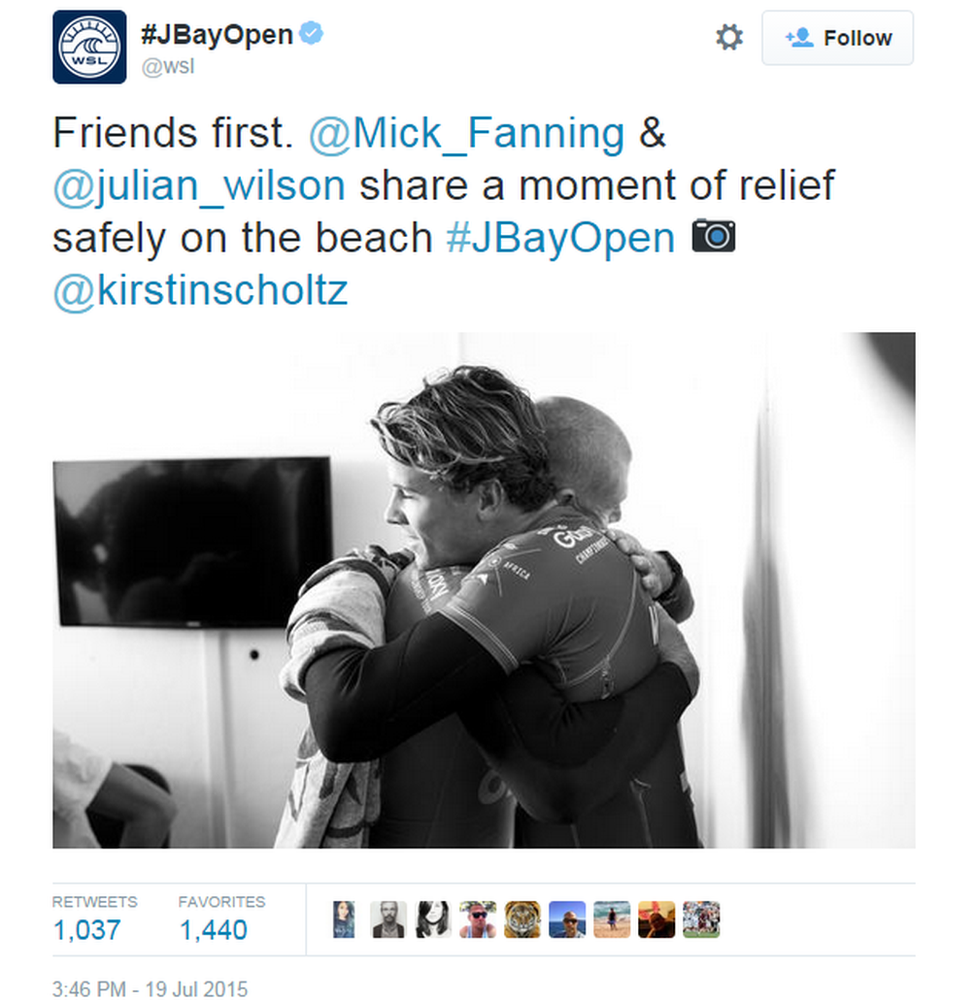
The commentators said it was the first time they had seen a shark attack a competitor during an event, according to the Herald. The WSL cancelled the tournament after the incident.
"Mick's composure and quick acting in the face of a terrifying situation was nothing short of heroic and the rapid response of our Water Safety personnel was commendable," it said in a statement.
A video of the incident can be seen on the WSL's website here, external and the aftermath of the attack can be viewed here, external.
Reuters says the waters are some of the most shark-infested in the world, and that a surfer was killed by a Great White shark close to Jeffreys Bay in 2013.
- Published20 July 2015
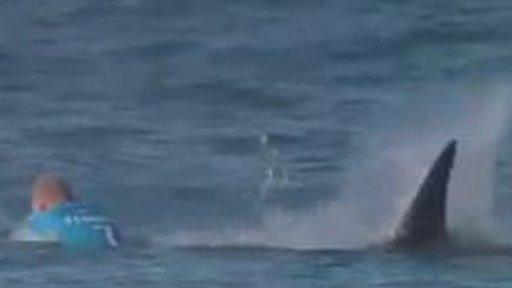
- Published19 July 2015
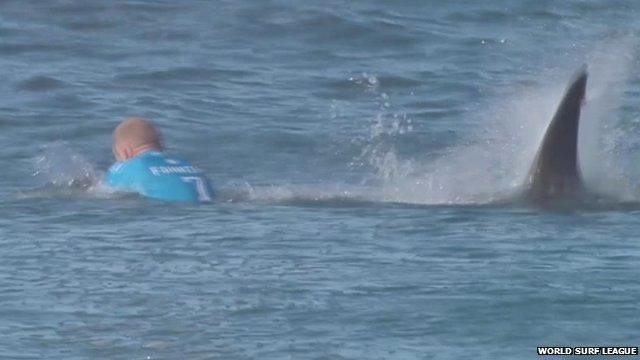
- Published31 March 2014
